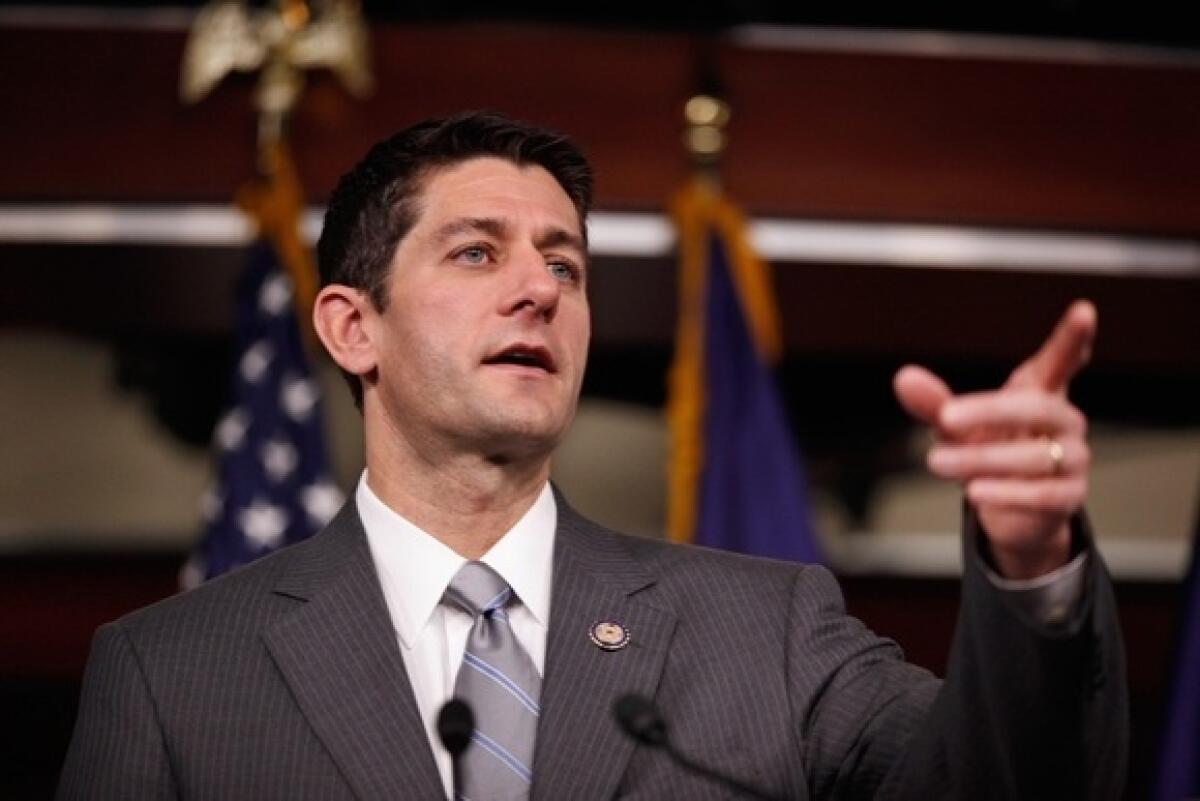Paul Ryan partners with leading Democrat on Medicare overhaul

- Share via
With Medicare emerging as a potentially central issue in the 2012 presidential campaign, a senior Republican and Democrat on Capitol Hill are teaming up to revive the push to convert the 46-year-old federal health insurance program for the elderly into a more market-based system built on commercial insurance.
The plan by House Budget Committee Chairman Paul D. Ryan (R-Wis.) and Sen. Ron Wyden (D-Ore.) would provide Medicare beneficiaries with a voucher to buy private insurance starting in 2022, a cornerstone of Republican plans to end the current government-run program.
But elderly and disabled Americans who rely on Medicare would be able to choose to remain in the current program with guaranteed government benefits, a safety valve that many Democrats believe is critical.
Ryan and Wyden, who plan to discuss their plan Friday morning at a Bipartisan Policy Center breakfast, are billing the proposal as a crucial bipartisan effort to prevent Medicare spending from swamping the federal budget.
“What we are trying to do here is plant the seeds for bipartisan consensus to save Medicare,” said Ryan, who earlier this year put forward a more radical voucher proposal that was adopted by House Republicans and pilloried by Democrats for essentially privatizing the federal program.
On Wednesday, Wyden, a longtime liberal Democrat, said he had no intention of dismantling the program.
“I consider Medicare the strongest part of the social safety net. And I would never support anything that would threaten it,” he said. “We simply believe there is an opportunity now to bring together progressive folks and conservative folks, find some common ground and strengthen the system.”
So-called premium-support models for Medicare have been a staple of healthcare debates in Washington for more than a decade.
And the idea has been endorsed by many healthcare industry leaders who believe the model offers the best hope for controlling the federal government’s rising healthcare tab.
But some past proposals to provide vouchers in place of the current open-ended entitlement – including Ryan’s – would have resulted in dramatically higher out-of-pocket healthcare costs for seniors.
Ryan’s earlier plan would have forced the typical senior to pay $6,000 more out of pocket in 2022, according to the nonpartisan Congressional Budget Office.
To avoid that, Wyden and Ryan said, their plan would tie the size of the voucher to the costs of private plans, thereby insulating seniors further from rising costs.
They also propose to require that all private insurers provide a minimum level of coverage. And they would protect low-income seniors by allowing them to keep their Medicaid coverage, which would cover their out-of-pocket costs.
The plan also gives Congress discretion to press down on providers and drug companies, rather than beneficiaries, if costs continue to rise too quickly.
With details still to be worked out, it is unclear what impact the Ryan-Wyden plan would have on either federal spending or on beneficiaries’ pocketbooks. “This is just a white paper,” Wyden said.
And at least in the short term, both men said, they don’t expect the idea to get much traction in Congress during an election year.
“We are under no delusions that this session is where we are going to fix Medicare. But the sooner we get solutions like this on the table, come together to evolve a consensus, the better off the country is going to be,” Ryan said.
More to Read
Sign up for Essential California
The most important California stories and recommendations in your inbox every morning.
You may occasionally receive promotional content from the Los Angeles Times.














